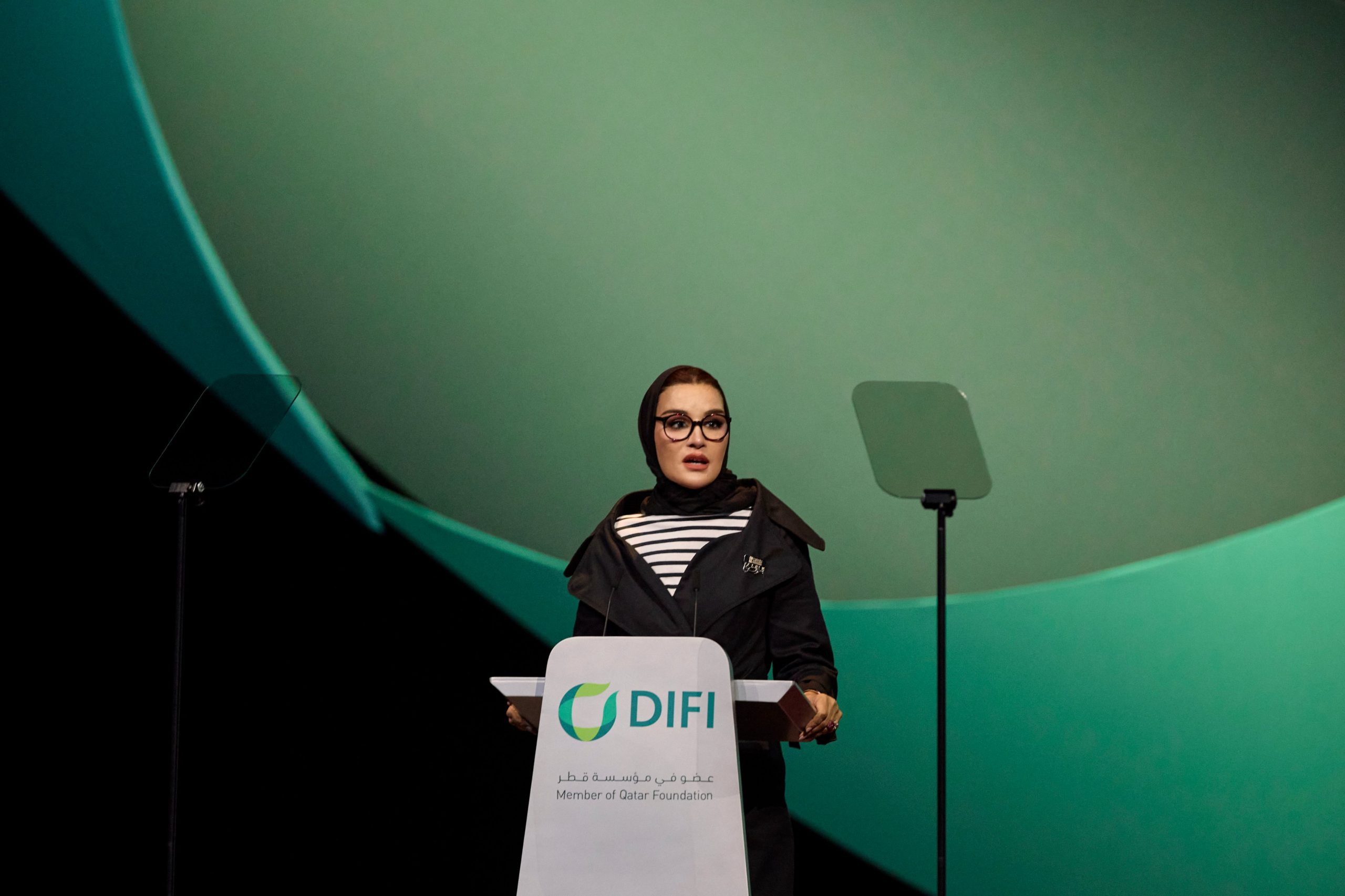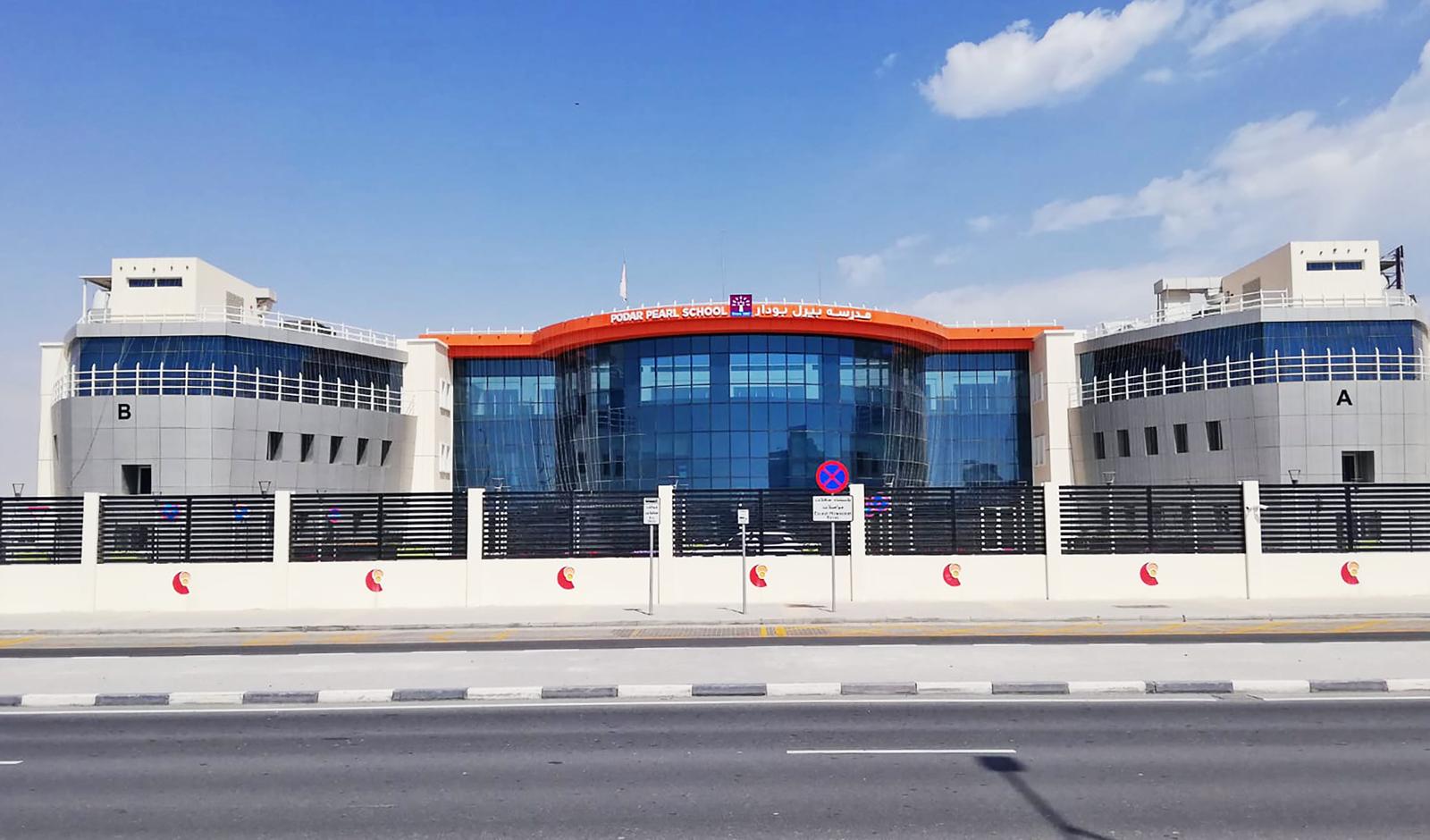
With reporting from Peter Kovessy
Speaking at the launch of an international education conference in Qatar today, Sheikha Moza bint Nasser delivered an impassioned speech that described the current education situation in the region as “not only paralyzed but going backwards at the speed of light.”
The Qatar Foundation chairperson gave the opening address at the annual World Innovation Summit for Education (WISE) to more than 2,000 delegates from over 150 countries, who gathered at the Qatar National Convention Center in Education City this morning.

Michelle Obama, the First Lady of the United States, also spoke at the opening session, arguing that improving educational opportunities for girls required changes in how women are treated in some countries.
Sheikha Moza first spoke in Arabic before switching to English, “to make sure we are all tuned into the same wavelength,” she told the delegates, who rewarded her with applause.
She raised the issues of lack of education, particularly for young children, in lower-income countries, as well as war-torn nations such as Syria and Iraq.
Quoting a recent UNESCO report, she said that an estimated 3 million primary school-age children are out of school in these two countries alone.
‘Sad and bitter’
The former first lady and mother to the current Emir recalled the situation during the first Gulf war, when she was approached by Iraqi scientists and academics for help as they fought oppression and attacks.

“I feel both sad and bitter with a heavy weight on my conscience,” she said, adding that she was involved in forming a committee to protect them, sending items including bullet-proof vests.
“But later, we lost contact with them, and we heard later they were terminated,” she added.
She called for countries to work together and take tough financial and political action against those regimes that attacked schools and hospitals, which she said was not isolated to Syria and Iraq but which was a “global problem.”
“Education is under attack. Our schools have been turned into cemeteries and our students and teachers into refugees. Corpses wash up on European shores,” she added.
Though she described the current situation as “bleak and dark,” Sheikha Moza said she remained optimistic about coming years.
“Though I have expressed my disappointment, grief and anger, I am hopeful that we can build and bright and better future,” Sheikha Moza added.

The First Lady of the United States followed Sheikha Moza in delivering remarks to the conference as one of her key public events during a two-day official visit to Qatar.
To applause, Michelle Obama praised Sheikha Moza for “her outstanding work on behalf of women and children here in Qatar and around the world.”
“The fact that two-thirds of university students in Qatar and nearly 40 percent of the Qatar work force are women is not an accident. It is due in huge part to her leadership,” she added.
Obama, who set up the initiative Let Girls Learn to champion the rights of girls and young women globally, said broader cultural attitudes are closely intertwined equality in education:
"We cannot separate the issue of how we educate girls from the issue of how we treat women more broadly in our societies." #LetGirlsLearn
— First Lady- Archived (@FLOTUS44) November 4, 2015
She said more men are challenging traditional gender roles to help level the playing field for women.
Speaking to the men in attendance, Obama said:
“We need you. As fathers, husbands and human beings – this is your struggle too.”
She gave examples of speaking out against discriminatory laws and beliefs, as well as questioning workplace policies, such as those surrounding parental leave, that may limit an individual’s ability to be both a successful professional and parent.
This is key for states that aspire to evolve into knowledge-based economies, Obama said:
“A country cannot make this transition if it ignores and disregards half its workforce.”
‘Mother’ of education
At the opening session of the conference, Dr. Sakena Yacoobi – the founder and executive director of the Afghan Institute of Learning (AIL) was named this year’s winner of the 2015 WISE Prize for Education Laureate.
Yacoobi, 65, has spent two decades working in education in Afghanistan and is known as the country’s “mother of education.”

She established “underground” home schools for 3,000 girls during the Taliban years in the 1990s when female education was banned, set up learning centers for girls and created teacher training programs.
More recently, she has opened up affordable private schools and launched a radio station to enable those in remote areas to access the institute’s content. A television network and a university for women are among her future plans.
Honoring her, Sheikha Moza said:
“This year’s Laureate is distinguished by her determination to bring education to her fellow citizens in the most adverse conditions of war and occupation.
While her work focuses on girls and women, it also benefits boys and men. Millions have benefited from her optimism.”
Footage of the opening speeches of the conference can be seen on Qatar Foundation’s website here.
Thoughts?







